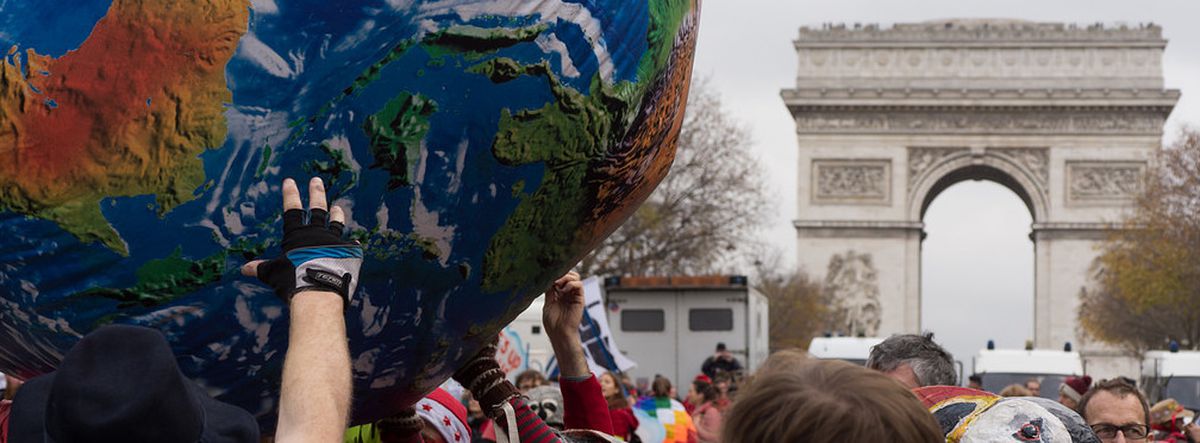
After COP21: Will Europe live up to its climate promises?
Published on
The global climate change agreement reached in Paris late last year may not be signed, sealed and delivered just yet, but the European Union is determined to maintain the momentum and goodwill generated at the summit. Last month, the European Commission completed an assessment of the deal aimed at determining what the EU must do to implement the agreement.
"We have the deal. Now we need to make it real," said EU Commissioner for Climate Action and Energy Miguel Arias Cañete. "For the EU, this means completing the 2030 climate and energy legislation without delay, signing and ratifying the agreement as soon as possible, and continuing our leadership in the global transition to a low-carbon future."
Specifically, that means updating the EU’s carbon trading program and finding a way to include the agriculture, transportation and building sectors, said EU spokesperson Anna-Kaisa Itkonen.
"The Paris Agreement sends a strong signal that the world is moving towards a global clean energy transition. We want to maintain the first-mover advantage, notably in renewable energy and energy efficiency," said Vice-President for the Energy Union Maroš Šefčovič. Adding that the EU emphasis will be on taking a market-based approach that creates opportunities for businesses to grow with the clean energy economy.
"There are also significant opportunities for our cities," he continued, "After all, it is in urban areas where an important part of the transition will actually happen. We will speed up our work in this field."
The assessment focuses on the need to get the agreement signed and ratified by all participating nations and the need for periodic reviews. The EU priority is implementing the 2030 energy and climate framework as agreed by the European Council in follow up to the Paris agreement. That legislative package calls for at least a 40% reduction in greenhouse gas emissions by 2030.
The Paris agreement opens for signatures on the 22nd of April in New York and becomes effective when at least 55 parties, representing at least 55% of global emissions, have ratified the agreement. While EU officials believe the Union is on track to meet the goals of the Paris agreement, some climate activists are not so sure.
"There is a huge gap between the Paris pledge and the EU’s actual plans for action," said 350.org Europe Team Leader Nicolò Wojewoda. "We need to make sure to keep the coal, oil and gas we simply cannot burn in the ground … and the current plans are still far from making that happen.
"It’s now up to ordinary citizens to get us there," he continued, adding that activists will push ahead with a series of direct actions, including mass mobilisations in May targeting major fossil fuel projects like coal mining in Germany and Wales.
Many environmental researchers agree with that assessment. "The most important need to adhere to the Paris agreement’s high ambitions would be phase out coal use. But this is exactly the dividing line in Europe," said Reimund Schwarze, a scientist with the Helmholtz Centre for Environmental Research. "We may see a new variant of ‘carbon leakage’ within the EU," he continued, referring to current manoeuvring in the cola and energy markets.
"In short," he concluded, "the Commission had a hard time in bargaining the 2030 goals, specifically the renewable and energy efficiency goals, under the more favourable political conditions of 2014. This would be much more difficult in these days. Specifically because of the new government in Poland."
The EU’s focus on ratification, and on the need for more science, is encouraging, said Joeri Rogelj, a researcher with the International Institute for Applied Systems Analysis in Vienna, Austria. But Europe needs to raise the bar for emissions cuts if it wants to remain a leader, he added.
Rogelj offered this analysis of the EU’s assessment: "The question whether or not the ambition of the anticipated EU climate action by 2030 is sufficient cannot be answered without making value judgments. How much countries should reduce their emissions in the near term depends on what you assume other countries will do and how risk averse you are regarding uncertainties in the climate system and uncertainties about specific future technologies.
"The first point is quite easy to understand. If one country does less, another country needs to do more. This thus becomes a matter of ethics. Which EU contribution constitutes a fair share, compared to what other countries are supposed to do? Recent research of ours shows, that the EU would have to take up significantly deeper reductions if it wants to qualify as a climate change leader.
"In conclusion, the targets put forward by the EU could be in line with the Paris Agreement’s 2 degree Celsius goal, but would need strengthening to be in line with a 1.5 degree Celsius pathway. However, ethical concerns related to a fair distribution of the global mitigation burden and to the large-scale use of specific mitigation technologies, can also support a call for further and deeper emissions reductions by the EU in the near term."



